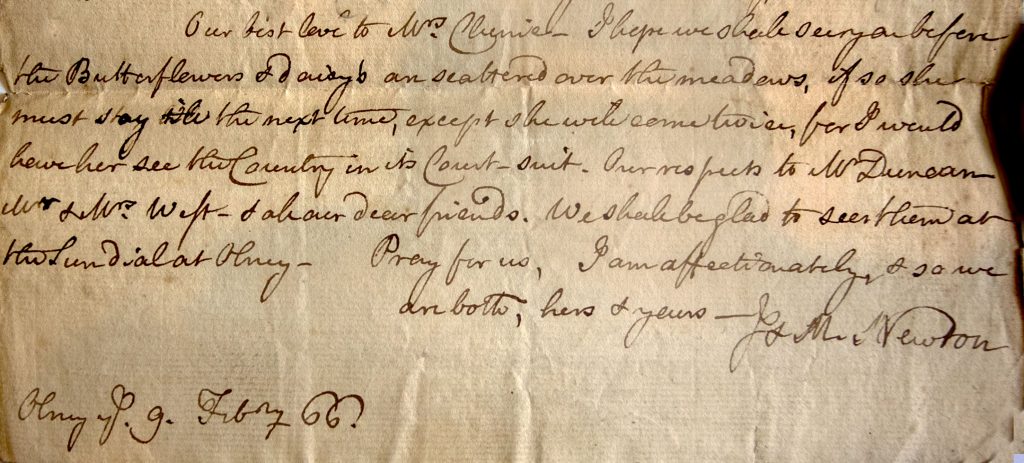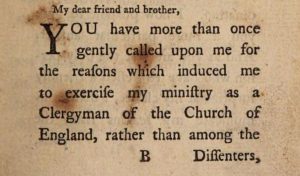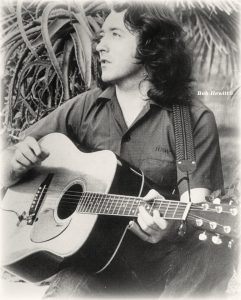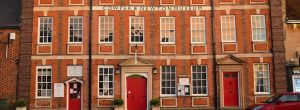Dear Brother: John Newton’s Letters to Alexander Clunie
Visitors to the museum later this month can enjoy a new display, Dear Brother: John Newton’s Letters to Alexander Clunie, based on some letters written by John Newton to his close friend Captain Alexander Clunie. The letters, 22 in total, were found in 2018 in the archive of a long-established London lawyer’s office where Captain Clunie had been a client. The letters are on loan to our museum until summer 2023. To accompany them we have a new fully illustrated display about the two men and their wives.
Clunie is mentioned in John Newton’s Authentic Narrative as the man whom he met in St Kitts on his last voyage, and who over the course of a few weeks became his spiritual adviser. The friendship lasted. Our letters were written between 1765 and 1769 and tell us something about John and Polly Newton’s life at the vicarage in Olney. The accompanying display also tells us a little about Clunie, a merchant who in earlier years had explored the hinterland of North America and Canada. Clunie never engaged in the slave trade.
Newton never returned to the sea again after the year he met Clunie. He benefited from the teaching of Clunie’s pastor at the Stepney Independent Meeting and other evangelicals across London. Taking a job in Liverpool, he studied for a possible career in the church and was eventually ordained to Olney in 1764. In London Clunie had various business interests and owned a warehouse. He performed frequent errands for John Newton, and it was to Clunie that the Newtons turned when they needed goods for the vicarage.
Supplies for the Vicarage
Alexander Clunie was a regular visitor to Olney. He got to know Newton’s parishioners and in hard times provided money for the poor. Newton kept him informed of the topics he chose for sermons.
One such example of Clunie’s support with supplies came when a local lacemaker was in need of a device to cut sugar, to avoid it getting stuck to her fingers and bobbins.
Polly and the Rebuilding of the Vicarage
Newton wrote regularly to Clunie, and sometimes Polly added her own postscripts. Although she was less of a fluent and elegant writer than her husband, Polly did not shy away from chastising Mr Clunie for the poor quality of tea and delays to her order for new grates!
The Journey to Yorkshire
Polly cared very much about her appearance and her clothes. In March 1767, the Newtons planned a journey to Helmsley in Yorkshire, for which Mr Clunie provided Polly with a portmanteau. At the last minute, this item of clothing proved too big, prompting urgent messages from Olney Vicarage to Polly’s dressmaker in London.
The Last Letters
In 1770, Alexander Clunie was in poor health and passed away. After his death Clunie’s son, from an earlier marriage, published John Newton’s correspondence with his father (a total of 61 letters), and without seeking permission from Newton. The majority of the 22 letters on loan at the museum were included in this printed collection, but the editor cut out most of the domestic details and Polly’s contributions. Now you can see them in our display.
Dear Brother: John Newton’s Letters to Alexander Clunie will be on display at the Cowper & Newton Museum from March to June 2023. Visit us to find out more about the story.






